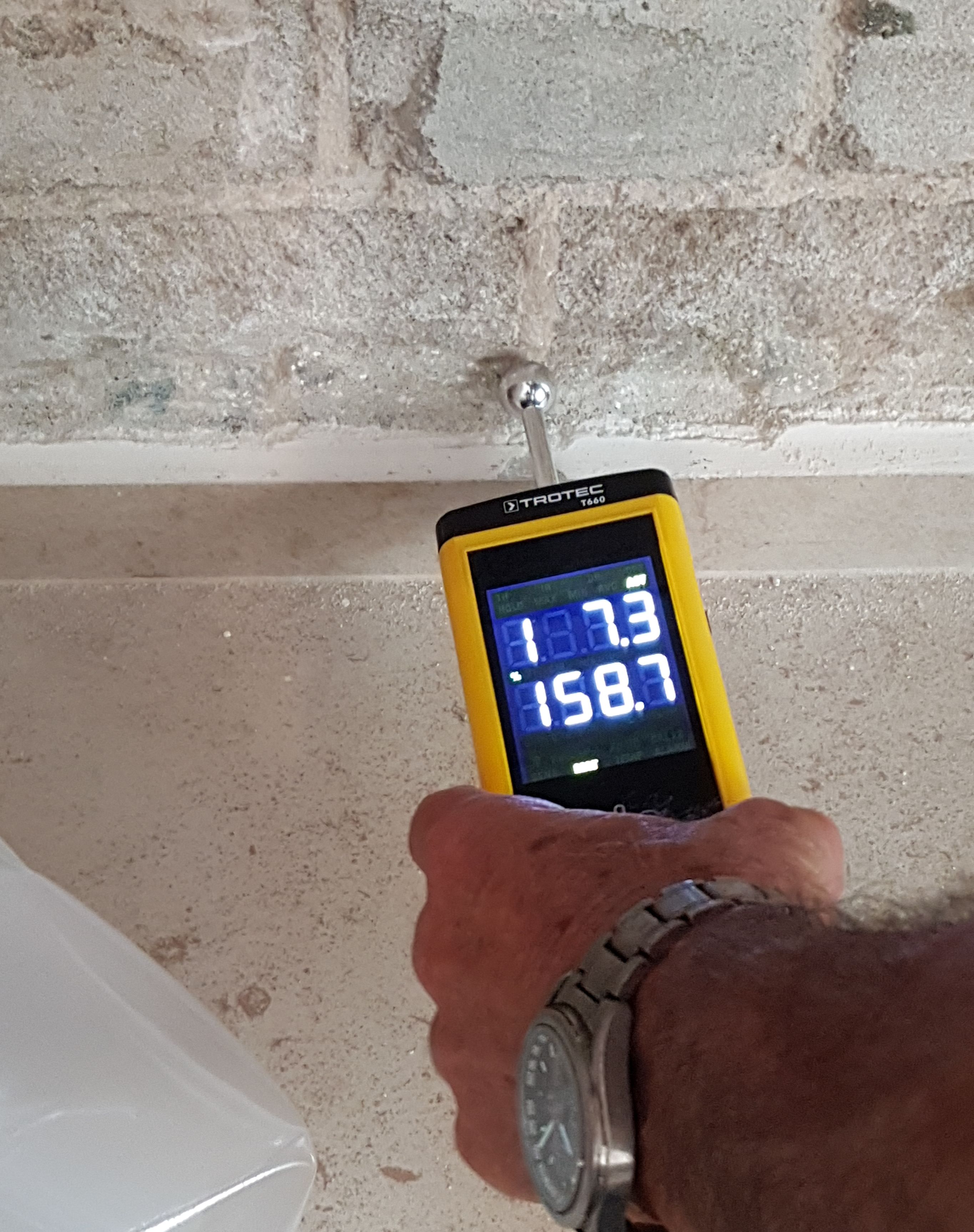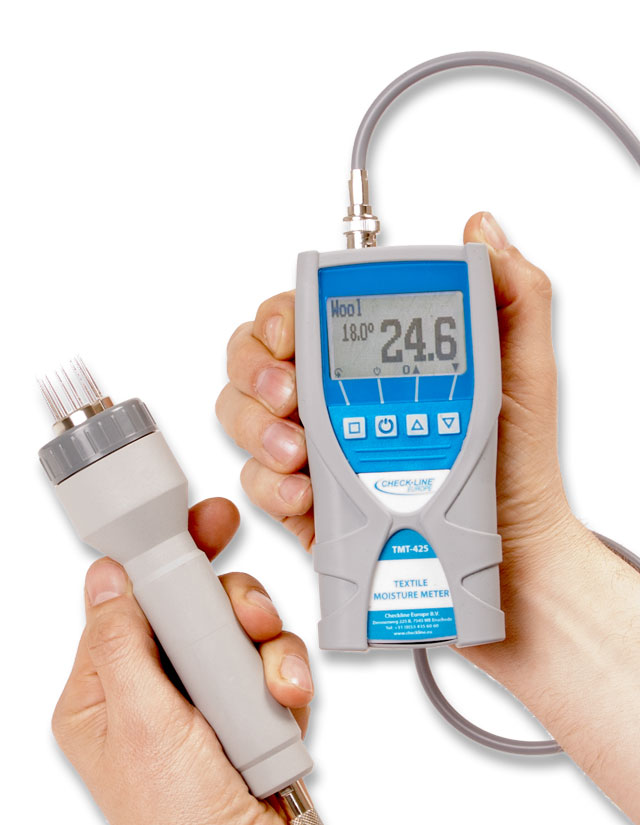The Ultimate Overview to Moisture Meters: A Comprehensive Introduction and Exactly How They Can Save You Money
In the realm of building upkeep, building and construction, and numerous sectors, the relevance of precisely determining wetness levels can not be overstated. Dampness meters work as crucial devices in finding and checking moisture web content in materials, aiding in preventing pricey problems and guaranteeing the quality of products. Comprehending the nuances of different kinds of dampness meters, their applications, and the prospective cost-saving benefits they offer can be a game-changer for businesses and specialists alike. Finding how these devices can not just enhance processes yet additionally add to monetary cost savings is a journey worth getting started on.
Kinds Of Moisture Meters
One usual type is the pin-type wetness meter, which gauges the electric resistance between two pins placed right into a product. Pinless moisture meters, on the other hand, usage electro-magnetic sensing unit plates to scan a larger area without triggering damages to the product's surface area.
Infrared wetness meters determine the thermal residential properties of a product to identify its wetness material non-invasively, making them helpful for applications where pin or pinless meters may not be ideal. Recognizing the various types of dampness meters offered can help industries pick the most ideal tool for their particular moisture dimension requirements.

Benefits of Making Use Of Moisture Meters

Furthermore, using moisture meters can lead to increased power performance. In farming settings, moisture meters play an important function in optimizing crop returns by allowing farmers to keep an eye on soil moisture degrees and make educated watering decisions.
How to Choose the Right Moisture Meter
Picking the proper wetness meter involves taking into consideration vital aspects such as material compatibility, measurement array, and calibration precision. When choosing a dampness meter, it's crucial to make sure that the meter appropriates for the specific product you will certainly be testing. Different products have varying electric homes that can affect moisture readings, so selecting a meter made for your material is essential for exact outcomes. Furthermore, consider the dimension variety of the dampness meter. Guarantee that the meter can detect wetness levels within the variety needed for your applications. Calibration accuracy is another essential aspect to maintain in mind (Moisture Meter). Select a dampness meter with trustworthy calibration to ensure exact and consistent analyses. Some meters might require routine calibration adjustments, so comprehending the calibration procedure is very important. By meticulously assessing these variables, you can choose a wetness meter that fulfills your needs and offers exact wetness measurements for your tasks.
Correct Techniques for Moisture Meter Usage
To make certain accurate moisture readings and make the most of the efficiency of a dampness meter, employing appropriate strategies is essential. When using a pin-type wetness meter, place the pins or probes right into the product being tested until they make full get in touch with. Make sure the pins are vertical to the surface area to obtain one of the most precise reading. description For pinless wetness meters, hold the gadget flat versus the product and relocate it slowly to cover the whole location for an ordinary reading. It's essential to calibrate the dampness meter according to the product being tested to enhance precision. Take numerous readings across the surface and typical them out for an extra reliable result. Additionally, make certain that the material being evaluated is adapted to the setting to prevent skewed readings. Regular maintenance of the moisture meter, such as cleaning the pins or sensor, is likewise essential to make certain precise and constant readings. By complying with these correct methods, users can count on their moisture meter to provide reliable wetness levels, assisting in protecting against expensive damage or ensuring top quality in different applications.

Cost Savings Via Moisture Meter Applications
How can the calculated application of over here dampness meters lead to significant cost savings throughout different sectors? In the farming industry, moisture meters aid in figuring out the ideal time for collecting plants, preventing over-drying or excess wetness that can affect the last product's high quality.

In addition, in the food handling sector, dampness meters are essential for monitoring product quality and ensuring compliance with safety regulations. By accurately gauging dampness web content in foodstuff, suppliers can protect against perishing, keep quality, and minimize waste, leading to significant price savings. Overall, the strategic application of dampness meters is a beneficial financial investment that can cause substantial cost decreases and enhanced effectiveness across numerous markets.
Final Thought
To conclude, moisture meters are beneficial tools for spotting and measuring wetness degrees in different materials. By making use of the ideal wetness meter and following correct methods, users can properly stop costly problems brought on by excess moisture. Buying a quality dampness meter can result in substantial expense savings in the future by identifying possible problems beforehand and allowing you can try here prompt removal. Ultimately, wetness meters are necessary instruments for keeping the integrity and long life of materials and structures.
Wetness meters offer as essential devices in discovering and keeping track of moisture content in materials, assisting in stopping costly problems and guaranteeing the high quality of items. Infrared moisture meters determine the thermal residential or commercial properties of a material to identify its dampness web content non-invasively, making them valuable for applications where pin or pinless meters might not be suitable.Moisture meters offer important advantages in precisely examining and checking dampness degrees in varied products and atmospheres. In agricultural settings, moisture meters play an essential role in optimizing crop returns by making it possible for farmers to monitor dirt dampness degrees and make notified irrigation decisions.In verdict, dampness meters are useful devices for finding and determining dampness degrees in different materials.